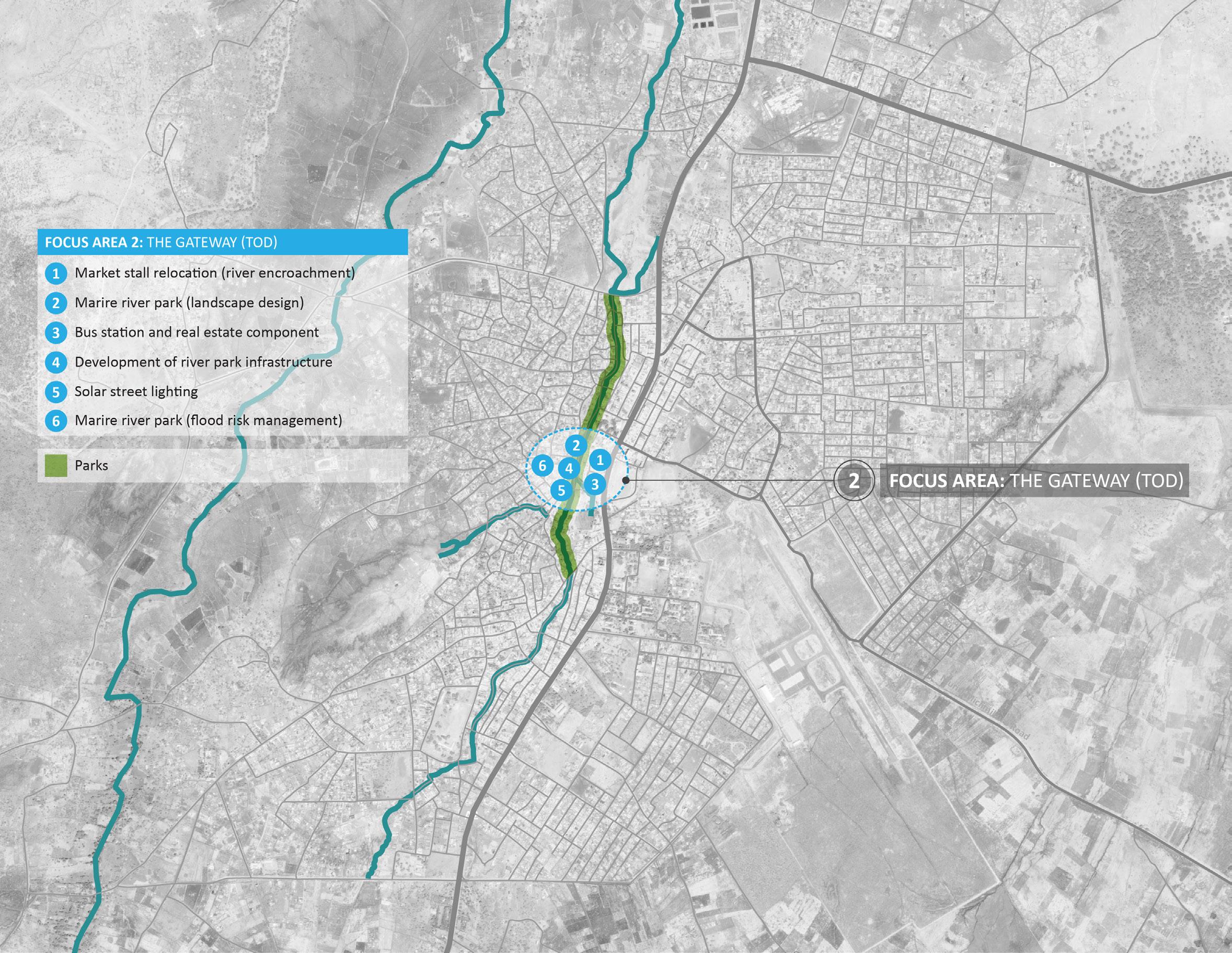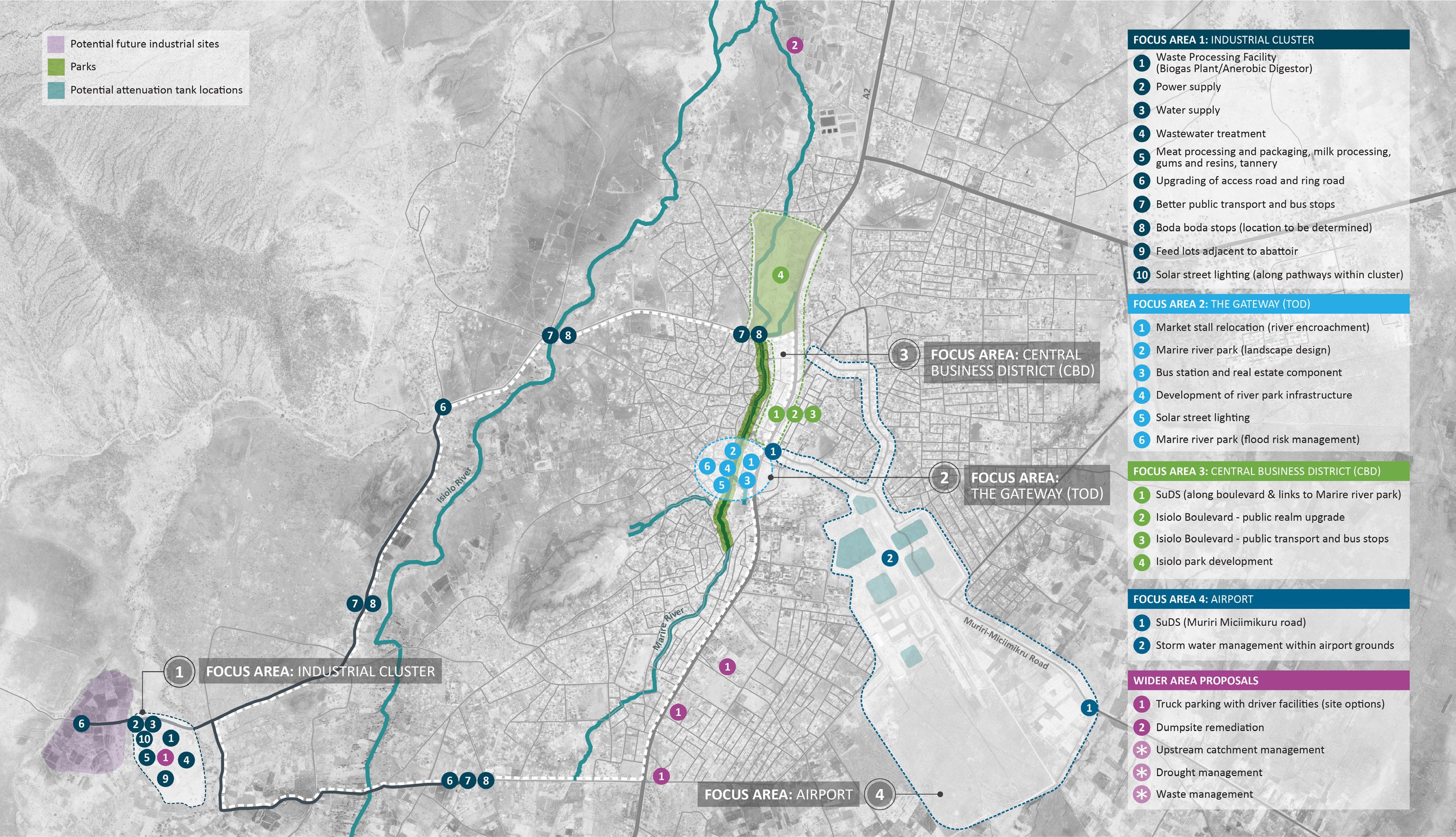ISIOLO URBAN DIAGNOSTICS
Climate change effects Isiolo County is one of the most vulnerable counties to climate change in Kenya. The key vulnerabilities in the County include drought, unpredictable rainfall and floods. Mean temperatures across the country are estimated to increase in the future, with the annual temperature projected to increase by up to 2.9˚c by the 2060s. Flooding results in soil erosion on pasturelands and the agriculturally productive river valleys, which undermines the environmental integrity, and the sustainability of crop and livestock production on these lands. Isiolo Town has experienced previous floods and half of households are settled within Merire river basin. These vulnerabilities have led to increased food insecurity and high incidences of poverty in the County, and an increase in unsustainable practices such as charcoal burning to supplement the low agricultural incomes. In particular in Isiolo County, the primary vulnerable sectors reflect those at a national level, agriculture, water, health, infrastructure and ecosystems, and require significant climate change adaptation investment need.
2.4. Key challenges / risks In order to achieve sustainable growth, there are a number of key challenges for Isiolo to overcome. The infrastructure of Isiolo Municipality is of insufficient capacity and quality and
to meet projected growth and to enable economic development, where existing infrastructure will need to be upgraded. Water scarcity is a major issue and Isiolo Town’s water supply is drawn from three surface sources and a cluster of 14 boreholes, only 8 of which are functional. The drainage system is inadequate for the peak flows experienced and heavy rains can flood the central commercial district. Without an ISUDP for Isiolo town there is a lack of a development framework within which infrastructure projects can be holistically planned for the long-term. The projected demographic rise in Isiolo Town’s population is expected to trigger increased demand for food products, both from livestock and crops. High demand in turn exerts pressure on the factors of production, such as natural resources, which may result in their degradation. Isiolo County is experiencing climate change exemplified by increased temperatures and heat stress, recurrent droughts and floods. As a result, crops have become more vulnerable to pest attacks and diseases causing losses in crop yield and harvest quality and sometimes leading to total crop failure. Agricultural production in the County is also challenged by competing demands for and conflict over natural resources use. Cases of livestock invading croplands, especially during dry spells, are very common. Isiolo’s markets need supporting infrastructure and improvement if they are to be capable of supporting the trade
of value adding agricultural outputs and support the development of a visitor economy. The markets in particular face issues of limited supply chain linkages, limited physical and walking access, poor lighting, poor waste management and risk flooding. There will be a need to employ sustainable and efficient practices utilising local resources as the economy diversifies and grows. Appropriate economic opportunities should be promoted, and the supporting infrastructure put in place, which minimise the exposure to climate change risks.
Agriculture including Livestock
22
Tourism
In addition to the above sectors, manufacturing is considered a key sector and specific actions are presented within the Development Framework for the establishment of an Industrial Cluster and supporting infrastructure. The identified Value chain opportunities are also prioritised as those which can act as anchor for further manufacturing activity. These are presented in sections 3.4 and 3.5 respectively.
Retail and Trade








